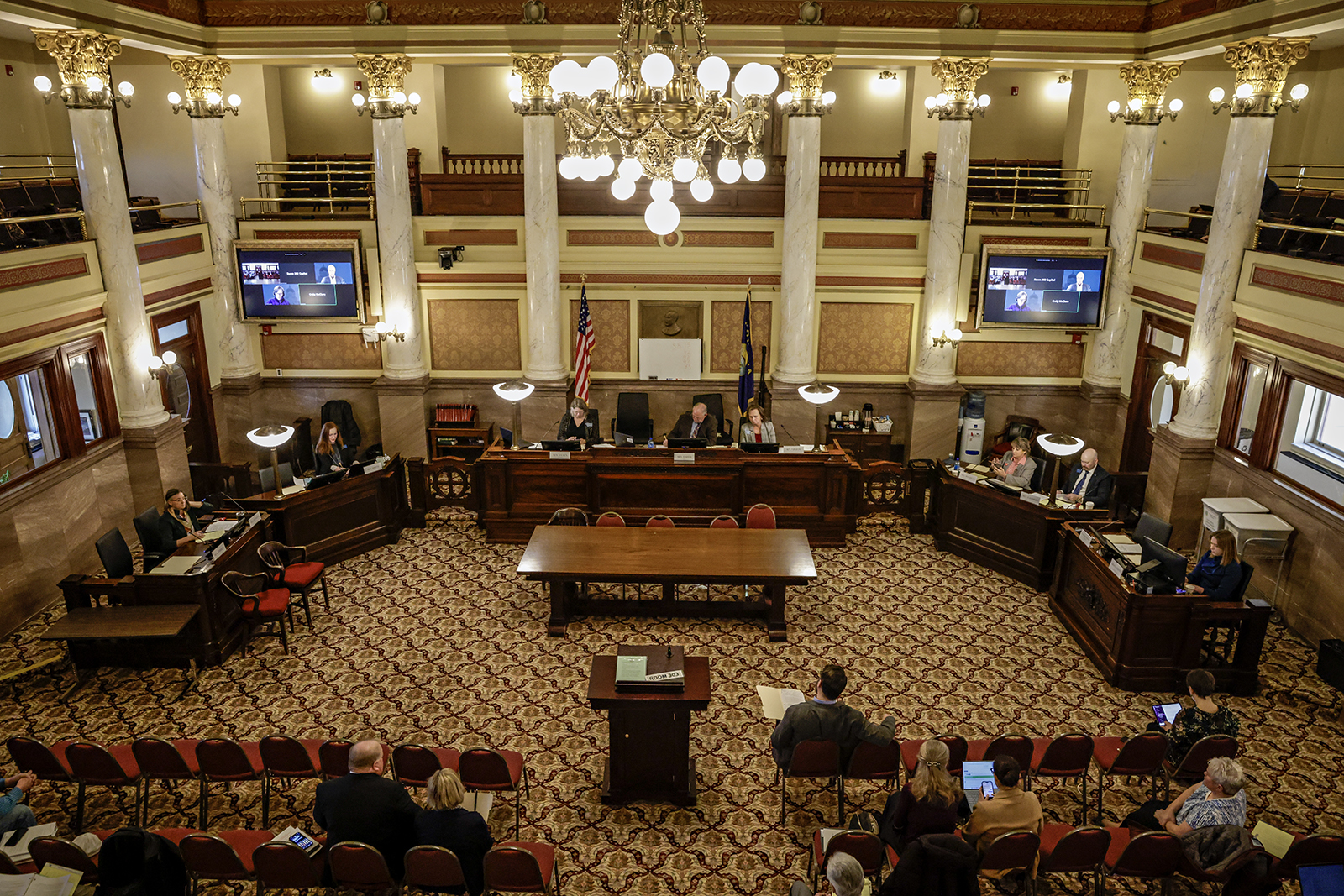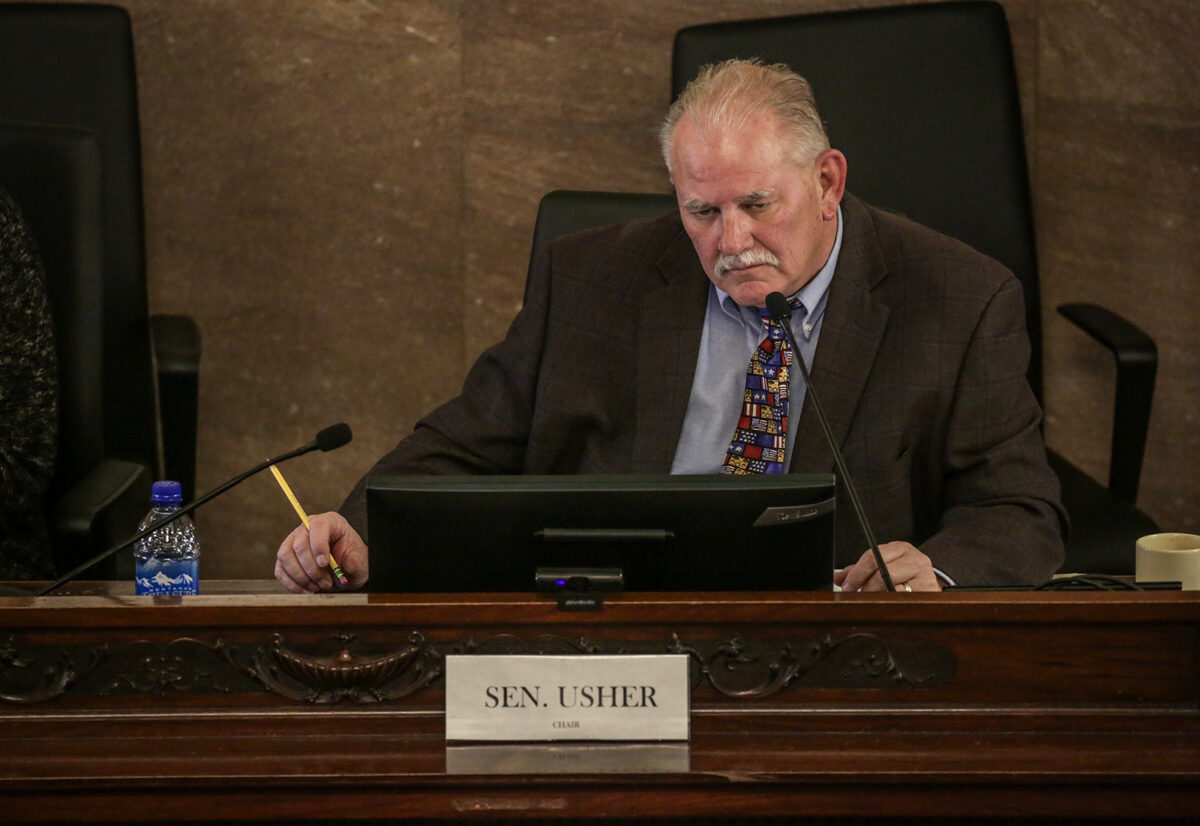Bill to Make Montana Judicial Elections Partisan Gets First Hearing
Senate Bill 42 would require candidates for Supreme Court, district court and justice of the peace to run with a party label
By Denali Sagner
HELENA — A bill to require Montana’s judicial candidates to run with party labels is making its way through the state Legislature after a hearing in front of the Senate Judiciary Committee on Thursday morning.
Senate Bill 42, brought by Sen. Dan Emrich, R-Great Falls, at the request of the Senate Select Committee on Judicial Oversight and Reform, would require judges and justices in Montana to run for office with a party label, reversing Montana’s long-standing tradition of holding nonpartisan judicial elections.
The bill is part of a wave of proposals brought by Republicans, who are aiming to curb the power of the judicial branch following a slate of decisions in which Montana’s courts struck down GOP-backed laws.
Montana voters currently elect judges and Supreme Court justices in nonpartisan races, meaning judges do not run with a party label. Political parties are also currently barred from contributing to judicial officers or judicial campaigns.
If passed, Senate Bill 42 would require candidates for Supreme Court, district court and justice of the peace to select a party when running for office and would bar candidates from running without a partisan label.
Republicans on Thursday argued that Montana’s judicial races are, already, effectively partisan, as interest groups pour large sums of money into campaigns each election cycle through a convoluted system of political action committees.
A November 2022 Supreme Court race between Justice Ingrid Gustafson and attorney James Brown drew $2.9 million in outside spending in the last month of the campaign, alone, per the Montana Free Press.
Lt. Gov. Kristen Juras, testifying in support of the bill on behalf of herself and Gov. Greg Gianforte, told the Senate Judiciary Committee that Montana’s judicial elections are “nonpartisan in name only.”
Gianforte endorsed partisan judicial elections during his State of the State address on Monday.
Proponents of the bill also told lawmakers that, without partisan judicial elections, Montana voters are left in the dark with a lack of information about candidates.

Derek Oestreicher, chief legal counsel and director of government affairs for the Montana Family Foundation, said voters lack even “the most basic details like party affiliation” when voting for judges.
Others described a disconnect between the will of the voters and the decisions of Montana’s highest court.
Opponents raised concerns that partisan judicial elections would muddy Montana’s separation of powers and insert politics into everyday court decisions, from divorce proceedings to misdemeanor charges.
“One of the greatest things about being a lawyer is how your politics do not matter,” Rep. James Reavis, D-Billings, testified, speaking about his experience as an attorney.
“Partisanship does not bring out the best in us,” Reavis said.
Speaking on behalf of the Northern Plains Resource Council, Norane Freistadt said, “We want justice, not politics. Courts with political agendas or courts that are more tainted with outside forces won’t get us any closer to impartiality.”
Democratic senators challenged Emrich, the bill sponsor, and Juras, raising concerns that the bill would dissuade judges from running for office and would subvert Montanans’ desires for nonpartisan courts.
Sen. Laura Smith, D-Helena, asked Emrich if he would be open to putting the proposal in front of the people, citing a League of Women Voters survey that found the majority of Montana voters support nonpartisan judicial races.
Emrich said he would not support turning the proposal into a ballot amendment, saying lawmakers “are the representatives of the people” in Helena.
When asked if she believed the bill would dissuade judges who consider themselves nonpartisan from running for office, Juras said, “My personal opinion is no, that it would not reduce the number of candidates that may be interested in judicial elections.”
Closing on the bill, Emrich said, “The nonpartisan system that we currently have shields the judiciary from the voters with a veil of nonpartisanship.”